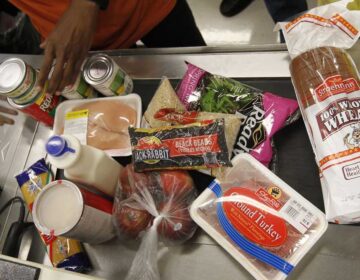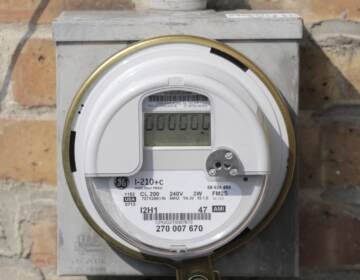‘Theft, plain and simple’: Delaware’s congressional delegation blasts billions in food assistance cuts passed by Republicans
Delawareans could soon start feeling the impact of federal budget cuts to SNAP and Medicaid programs.
Listen 1:01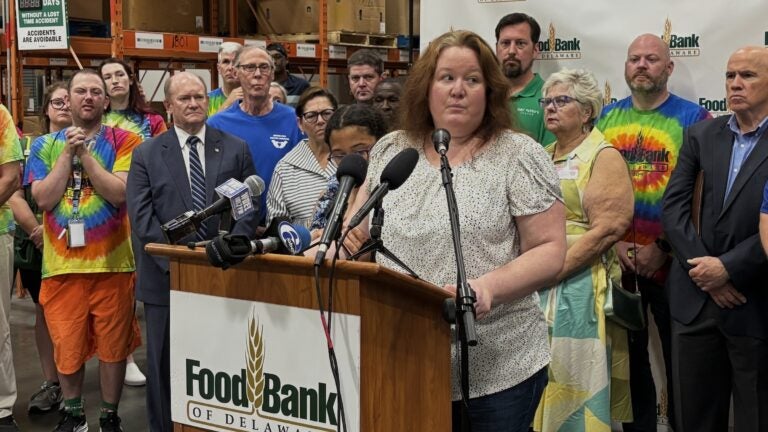
Newark resident Elizabeth Morales talks about the SNAP program being a lifeline after she lost her job in 2023 at a news conference at the Food Bank of Delaware on July 11. (Sarah Mueller/WHYY)
From Philly and the Pa. suburbs to South Jersey and Delaware, what would you like WHYY News to cover? Let us know!
Newark resident Elizabeth Morales said she relied on food assistance for 11 months after being laid off from her job in 2023. The single mom said it helped her and her daughter Charlotte survive while she was looking for another place to work.
But the sweeping budget legislation President Donald Trump dubbed “One Big Beautiful Bill” that Congress passed earlier this month cuts the low-income Supplemental Nutrition Assistance Program by nearly $186 billion between now and 2034, according to the Congressional Budget Office. That could mean thousands of Delawareans would lose their benefits due to increased work requirements and states having to shoulder more of the costs.
“They’re redirecting our hard earned tax dollars, the very money that is supposed to be set aside for us when we hit our hard times, and sending it towards people who don’t need it,” Morales said at a recent news conference with the state’s congressional delegation. “This is theft, plain and simple, and it doesn’t make us stronger. It will just make more of us struggle.”
The Trump administration and Republicans in Congress, who passed the bill without support from Democrats, say that budget cuts are needed to control government spending and support tax cuts.
SNAP program changes
Starting in fiscal year 2027, Delaware and other states will have to cover more of the administrative costs of the program, paying for 75% of the cost, compared with the 50% split with the federal government in previous years.
There are also new work requirements for people aged 54 to 64, including some parents of school-age children. States will have to pay additional costs if their error rate for payments is above 6% starting in fiscal 2028. According to the U.S. Department of Agriculture, Delaware’s FY 2024 error rate was 12.37%. Just eight states’ error rates were below 6% for that year.
Many of these changes are unprecedented firsts for the food assistance program, which dates back to 1939 and the Great Depression.
U.S. Sen. Lisa Blunt Rochester said 37,000 Delawareans are at risk of losing their benefits because of paperwork, red tape and bureaucracy.
“To me, it’s a deception to say that it is about helping us as a country, when really it’s going to explode the debt and the deficit, and it’s all for tax cuts for people who really don’t need the help or the support,” she said. “That’s what rings true in my mind and for Delawareans.”
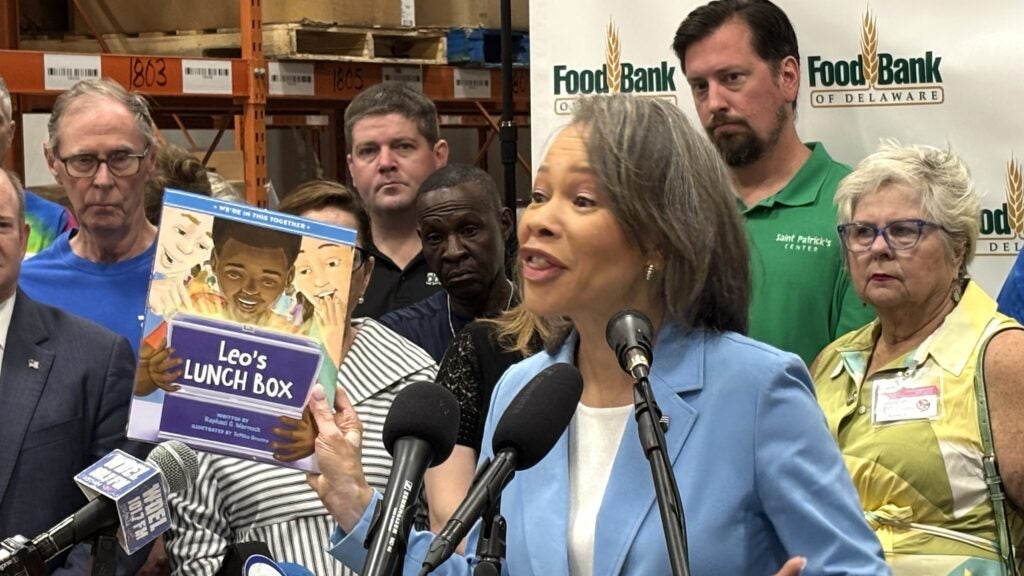
Delaware students could also be at risk of losing access to free and reduced meals and health services. States can automatically enroll low-income families who qualify for other low-income federal assistance into SNAP, which allows students to receive free school meals. Congresswoman Sarah McBride said families will now face mountains of paperwork just to keep their kids fed in school. Children who lose their food assistance benefits could also lose their access to free school lunches.
“That burden won’t just fall on parents,” McBride said. “Schools, especially those serving low-income students, will be overwhelmed with processing and verifying meal applications and that’s less time spent on the classroom and more time chasing forms, with hungry kids caught in the crosshairs.”
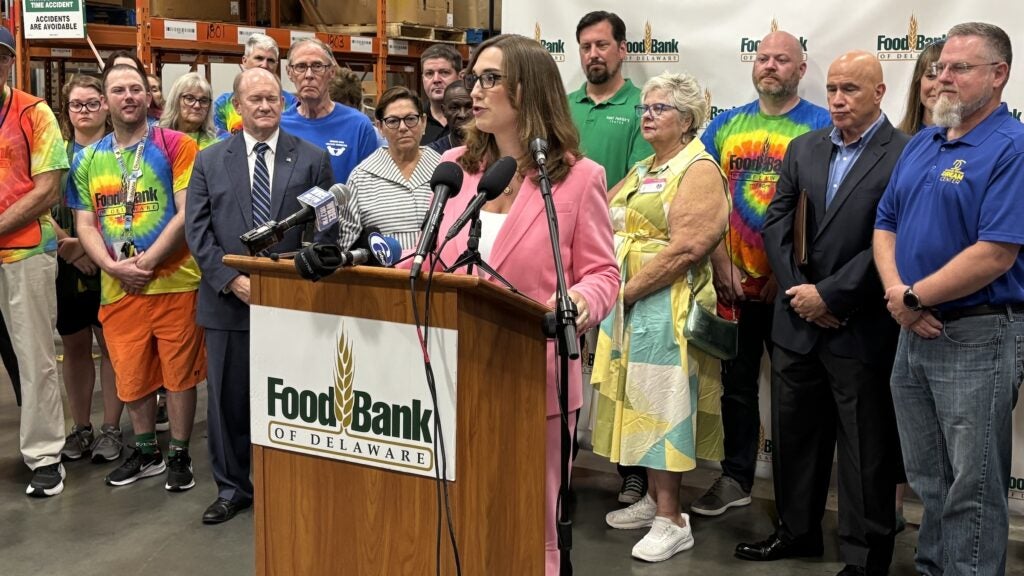
Medicaid cuts
The budget bill Congress passed also cuts more than $1 trillion in health spending over the next 10 years, with the majority of that coming from Medicaid. It’s expected to strip about 11.8 million Americans of coverage by costs to states and add new work requirements for patients.
Sen. Chris Coons said he won’t stop trying to find ways to reduce the impact of the cuts to children and families.
“I know of no faith that teaches that the right choice, the right values are to make sure that the wealthiest get wealthier, and the way to pay for that is to take away health care from the sick and food from the hungry — in fact, the opposite,” he said.
This story was supported by a statehouse coverage grant from the Corporation for Public Broadcasting.

Get daily updates from WHYY News!
WHYY is your source for fact-based, in-depth journalism and information. As a nonprofit organization, we rely on financial support from readers like you. Please give today.



